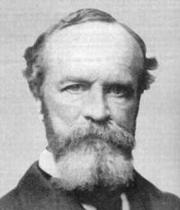
Meliorism is an idea in metaphysical thinking holding that progress is a real concept leading to an improvement of the world. It holds that humans can, through their interference with processes that would otherwise be natural, produce an outcome which is an improvement over the aforementioned natural one.
Meliorism, as a conception of the person and society, is at the foundation of contemporary liberal democracy and human rights and is a basic component of liberalism.[1]
Another important understanding of the meliorist tradition comes from the American Pragmatic tradition. One can read about it in the works of Lester Frank Ward, William James, and John Dewey. In James' works, however, meliorism does not pinpoint to progressivism and/or optimism. For James [2] meliorism stands in the middle between optimism and pessimism, and treats the salvation of the world as a probability rather than a certainty or impossibility.
Meliorism has also been used by Arthur Caplan to describe positions in bioethics that are in favor of ameliorating conditions which cause suffering, even if the conditions have long existed (e.g. being in favor of cures for common diseases, being in favor of serious anti-aging therapies as they are developed).
A closely related concept discussed by Jean-Jacques Rousseau and Marquis de Condorcet is that of perfectibility of man.
Condorcet's statement, "Such is the object of the work I have undertaken; the result of which will be to show, from reasoning and from facts, that no bounds have been fixed to the improvement of the human faculties; that the perfectibility of man is absolutely indefinite; that the progress of this perfectibility, henceforth above the control of every power that would impede it, has no other limit than the duration of the globe upon which nature has placed us."[3] anticipates James' meliorism.
Rousseau's treatment is somewhat weaker.[4]
See also
- Antinaturalism (sociology)
- Extropianism
- Idea of Progress
- Techno-progressivism
- Teleology
- The Ultimate Resource
- Transhumanism
- Whig history
References
- ^ Shaver, S. (July 1996). T. Eardly (ed.). "Liberalism, gender and social policy" (PDF). Social Policy Research Centre.
- ^ William James. Pragmatism, 1978. Massachusetts: Harvard University Press. p.137. [1795]
- ^ Marie-Jean-Antoine-Nicolas Caritat, Marquis de Condorcet, "Outlines of an historical view of the progress of the human mind" [1795]
- ^ Rousseau, J. J., (1754). "Discourse on the Origin of Inequality"(Translated by G. D. H. Cole)
External links
- Graebner, Norman, "The Limits of Meliorism in Foreign Affairs", Virginia Quarterly Review, Winter 2000